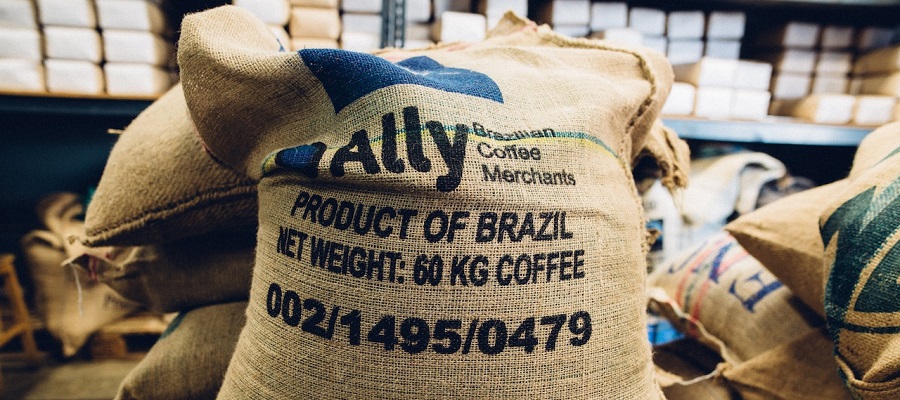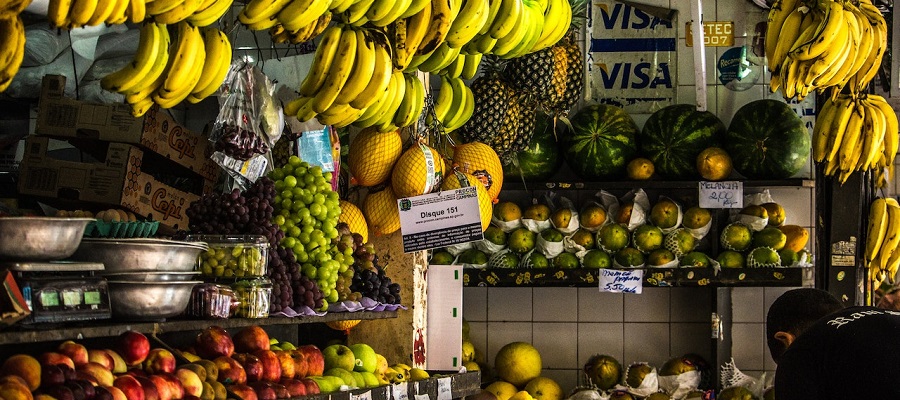"Grocery Wholesale Warehousing and Storage: Ensuring Product Quality and Safety"
Grocery wholesalers handle large volumes of products, and the proper storage and warehousing of these products is crucial for ensuring that they remain fresh, safe, and of high quality. In this article, we will explore the various considerations that grocery wholesalers must take into account when it comes to storing and warehousing products, as well as the measures that they take to ensure that the products are safe and of the highest quality.
Types of Warehousing and Storage Options
Grocery wholesalers handle large volumes of products and must have efficient systems in place for storing and warehousing these products. There are a variety of warehousing and storage options that grocery wholesalers may use, depending on the specific products being stored and the conditions required to maintain their quality and safety.
One type of warehousing and storage option is temperature-controlled warehouses. These warehouses are designed to maintain a specific temperature range, which can be useful for storing products that are sensitive to temperature fluctuations. For example, temperature-controlled warehouses may be used to store products such as fresh produce, dairy products, and meats, which require refrigeration to maintain their freshness and prevent spoilage.
Another type of warehousing and storage option is refrigerated warehouses or coolers. These warehouses or coolers are specifically designed to maintain a low temperature range, typically between 33 and 45 degrees Fahrenheit, in order to keep perishable products fresh and prevent spoilage. Refrigerated warehouses or coolers may be used to store products such as fresh produce, dairy products, and meats, as well as other perishable items such as deli meats, baked goods, and prepared foods.
Finally, dry storage warehouses are used to store non-perishable products such as canned goods, dry goods, and household essentials. These warehouses are typically not temperature-controlled, as the products being stored do not require specific temperature conditions to remain fresh.
In addition to the type of warehousing and storage option used, grocery wholesalers must also consider the size and layout of their warehouses and storage facilities. For example, a grocery wholesaler may need a large warehouse with high ceilings and wide aisles in order to store and handle pallets of products, while a smaller grocery store may need a more compact warehouse with narrow aisles and lower ceilings.
Ensuring Product Quality and Safety
In addition to the proper storage conditions, grocery wholesalers must also take steps to ensure that the products they store are safe and of high quality. This may involve a number of measures, including regularly inspecting products for quality, implementing food safety protocols, and handling products in a manner that minimizes the risk of contamination.
One way that grocery wholesalers can ensure product quality is by regularly inspecting products for quality. This may involve visually inspecting products for signs of spoilage or damage, as well as testing products for freshness or other quality indicators. By regularly inspecting products, grocery wholesalers can identify and remove any products that do not meet their standards, ensuring that only high-quality products are made available to customers.
In addition to regularly inspecting products, grocery wholesalers may also implement food safety protocols in order to prevent contamination and ensure that the products they sell are safe for consumption. These protocols may include strict guidelines for handling and storing products, as well as procedures for handling products that have been recalled or are past their expiration date.
Finally, grocery wholesalers must also handle products in a manner that minimizes the risk of contamination. This may involve the use of gloves, hair nets, and other protective gear, as well as proper hygiene practices such as washing hands regularly. By following these guidelines, grocery wholesalers can help to prevent the spread of germs and ensure that the products they sell are safe for consumption.
Inventory Management and Record Keeping
Proper inventory management is also crucial for ensuring that products are stored and handled correctly. This may involve keeping track of the products that are stored in each warehouse or cooler, as well as the quantities and expiration dates of each product. This information can help grocery wholesalers to ensure that products are rotated and used in a timely manner, and that products that are past their expiration date are removed from circulation.
Grocery wholesalers may also keep records of the products that are stored in their warehouses, as well as the conditions under which they are stored. This information can be useful in the event of a product recall or other issue, as it can help the grocery wholesaler to identify and isolate any affected products quickly and efficiently.
Implementing Safety Protocols
Grocery wholesalers may also take steps to ensure the safety of their warehouses and storage facilities, including implementing fire safety protocols, securing the facilities against theft or vandalism, and regularly inspecting the facilities for maintenance and repair needs. By taking these steps, grocery wholesalers can help to protect their products and ensure that they are available to customers in a safe and timely manner.
In conclusion, the proper storage and warehousing of products is crucial for ensuring that they remain fresh, safe, and of high quality. Grocery wholesalers must consider a variety of factors when it comes to storing and warehousing products, including the type of products being stored, the storage conditions required, and the safety protocols that are in place. By carefully managing their inventory and implementing safety protocols, grocery wholesalers can help to ensure that


